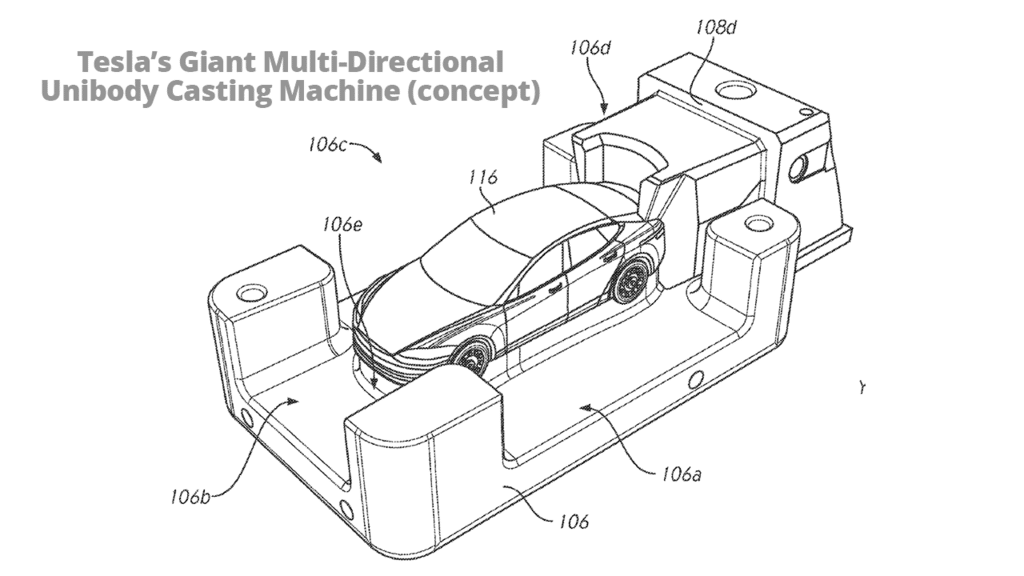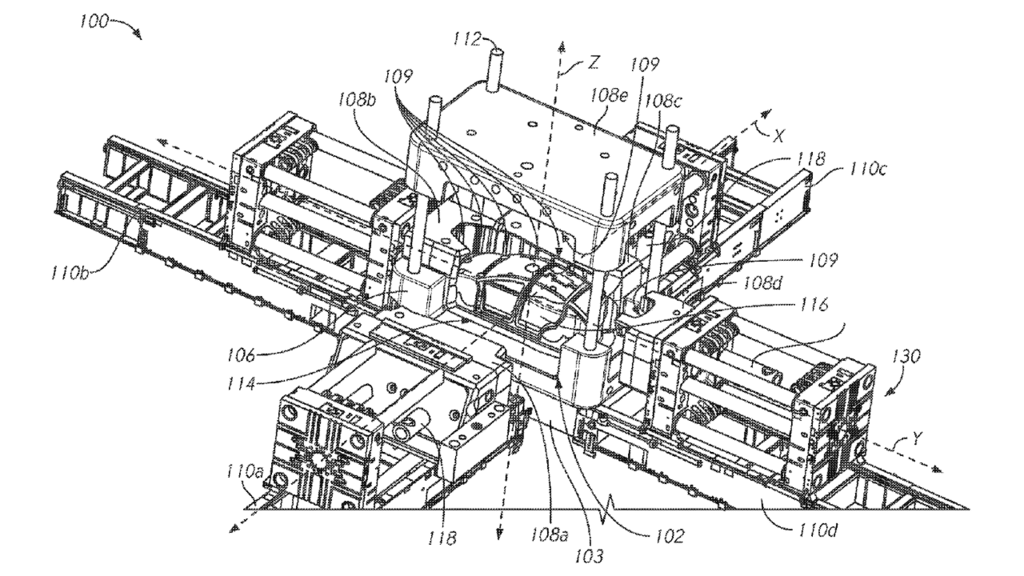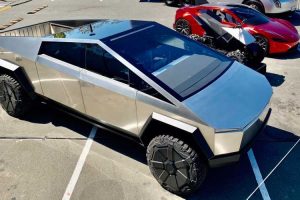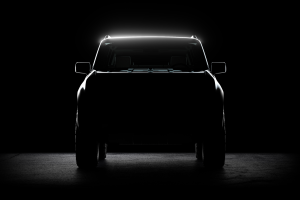Tesla has not given up on its dream of manufacturing cars by creating the entire body of the vehicle with a single-piece casting. Elon Musk recently tweeted, “With our giant casting machines, we are literally trying to make full-size cars in the same way that toy cars are made.”

Just like toy cars are manufactured using a complete body diecast, Tesla is trying to bring the same concept to real-world car manufacturing. Tesla’s success in this methodology will further advance the single-piece giga casting revolution the automaker has begun to introduce with its Model Y electric SUV.
Last year, a Tesla patent showcased how the company envisions a giant unibody casting machine that could create the entire shell of the car (exoskeleton) all at once.
That said, when Musk showed the Model Y’s single-piece rear and front underbody castings on Battery Day, skeptics said that the unibody production concept was now dead. However, with Musk’s recent tweet, it’s clear that Tesla is still pursuing the idea of a monocoque Tesla car.
As a reference point, the following video shows how toy car shells are carved out of a single piece of wood or metal. In essence, Musk is trying to take this technique from the toy industry and bring it to the auto industry. As a side note, this method used for toy cars is not new — the example seen in the video actually dates back to 1965.
While this might not happen for the Model Y, Tesla’s Cybertruck is expected to begin production at Giga Texas later this year. Could Cybertruck take advantage of a unibody casting?
Doubtful. Cybertruck marks the genesis of Tesla’s first exoskeleton approach from a production standpoint. Its body is thought to be a stainless steel sheet folded to form the iconic low-poly shape — a distinct (and unique) form factor but not necessarily a candidate for this unibody casting.
Making a unibody Model S, 3, X, Y, or a future Tesla will likely require an even bigger giga casting machine than the ones we saw at Tesla’s Fremont car factory (also currently operational at Giga Shanghai). In fact, Giga Berlin also created space for eight of these machines to be commissioned on the factory floor.
However, those particular machines are giant Idra presses customized to create Tesla Model Y underbody castings. What Musk is talking about is an even bigger machine. A glimpse of this concept can be seen in the following blueprint illustration taken from Tesla’s patent related to a giant unibody casting machine.

A machine this big can make the current giga casting machines look small. One thing to remember is that, after further fine-tuning, Tesla might file another patent or re-apply with changes.
Nevertheless, it’s still not clear when Tesla will be able to achieve the goal of creating an entire car using a giant casting machine. But the future of automotive manufacturing could become more interesting as we move closer and closer to a compact $25,000 Tesla.
An earlier version of this article was originally published on Tesla Oracle.
Original Publication by Iqtidar Ali at EVANNEX.





